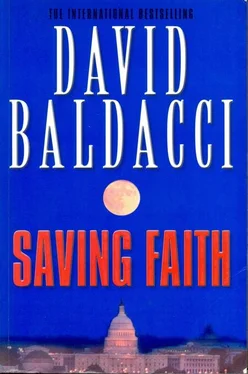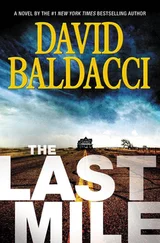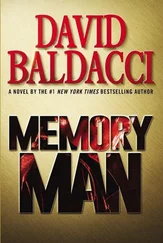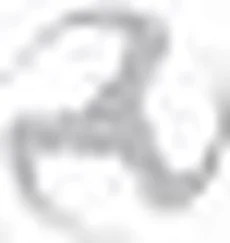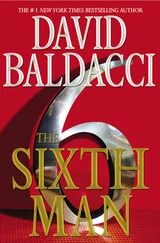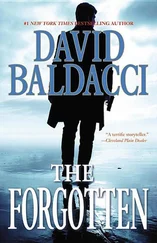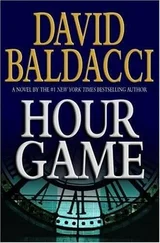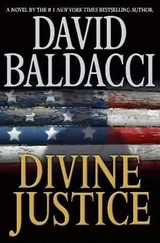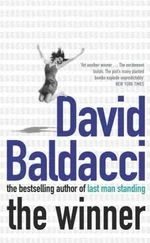David Baldacci - Saving Faith
Здесь есть возможность читать онлайн «David Baldacci - Saving Faith» весь текст электронной книги совершенно бесплатно (целиком полную версию без сокращений). В некоторых случаях можно слушать аудио, скачать через торрент в формате fb2 и присутствует краткое содержание. Жанр: Политический детектив, на английском языке. Описание произведения, (предисловие) а так же отзывы посетителей доступны на портале библиотеки ЛибКат.
- Название:Saving Faith
- Автор:
- Жанр:
- Год:неизвестен
- ISBN:нет данных
- Рейтинг книги:4 / 5. Голосов: 1
-
Избранное:Добавить в избранное
- Отзывы:
-
Ваша оценка:
- 80
- 1
- 2
- 3
- 4
- 5
Saving Faith: краткое содержание, описание и аннотация
Предлагаем к чтению аннотацию, описание, краткое содержание или предисловие (зависит от того, что написал сам автор книги «Saving Faith»). Если вы не нашли необходимую информацию о книге — напишите в комментариях, мы постараемся отыскать её.
Saving Faith — читать онлайн бесплатно полную книгу (весь текст) целиком
Ниже представлен текст книги, разбитый по страницам. Система сохранения места последней прочитанной страницы, позволяет с удобством читать онлайн бесплатно книгу «Saving Faith», без необходимости каждый раз заново искать на чём Вы остановились. Поставьте закладку, и сможете в любой момент перейти на страницу, на которой закончили чтение.
Интервал:
Закладка:
For over two decades Buchanan had been the top influence peddler of them all. In some important ways he had laid the groundwork for lobbying in Washington. It had evolved from highly paid lawyers dozing at congressional hearings to a world of numbing complexity where the stakes couldn't possibly be higher. As a Capitol Hill hired gun, he had successfully represented environmental polluters in battles with the EPA, allowing them to spread death to an unsuspecting public; he had been the lead political strategist for pharmaceutical giants who had killed moms and their kids; next a passionate advocate for gun makers who didn't care if their weapons were safe; then a behind-the-scenes player for automobile manufacturers who would rather fight than admit they were wrong on safety issues; and finally, in the mother of all cash cows, he had spearheaded the efforts of tobacco companies in bloody wars with everyone. Back then Washington could not afford to ignore him or his clients. And Buchanan had earned an enormous fortune.
Many of the strategies he had concocted during that time had become staples of current legislative manipulation. Years ago he had had congressmen float bills on the House floor he knew would be defeated, in order to rip away platforms for change later. Now that tactic was routinely employed in Congress. Buchanan's clients hated change. He had constantly fought rearguard actions as those who wanted what his clients had nipped at his heels. How many times had he avoided outright political disaster by flooding members' offices with letters, propaganda, thinly veiled threats to drop financial support. "My client will support you for reelection, Senator, because we know you'll do right by us. And, by the way, the contribution check is already in your campaign account." How many times had he said those words.
Ironically, it was the spoils of lobbying for the powerful that had led to a dramatic change in Buchanan's life over ten years ago. His original plan had been to build his career first and then settle down with a wife and raise a family. Deciding to see the world before he took on these responsibilities, Buchanan had driven through western Africa in a sixty-thousand-dollar Range Rover on a photography safari. In addition to the beautiful animals, he had seen squalor and human suffering of unmatched depth. On another trip, to a remote region of the Sudan, he had witnessed a mass burial of children. An epidemic had swept the village earlier, he was told. It was one of the devastating diseases that routinely afflicted the area, killing off the young and elderly. What was the disease? Buchanan had asked. Something like measles, he was told.
Another trip he had watched as billions of American-produced cigarettes were unloaded on Chinese docks, to be consumed by people who already spent their lives wearing masks because of abysmal air pollution. He was witness to birth-control devices that had been banned in the United States being dumped by the hundreds of thousands in South America with one set of instructions written only in English. He had viewed shacks next to skyscrapers in Mexico City, starvation next to crooked capitalists in Russia. Though he had never been able to go there, North Korea, he knew, was a certified gangster state where it was believed that ten percent of the population had starved to death in the last five years. Every country had its schizophrenic story to tell.
After two years of this "pilgrimage," Buchanan's passion for marriage, having a family of his own, had evaporated. All the dying children he had seen became his children, his family. Fresh graves would still come by the millions for the young, the old, the starving of the world, but not without a fight that had become his. And he brought to it all that he had, more than he had ever given to the tobacco, chemical and gun behemoths. To this day he recalled in precise detail how this revelation of sorts had come: returning from a trip to South America, an airplane lavatory, him on his knees, his stomach sickened. It was as though he had personally murdered every dying child he had seen on that continent.
With eyes freshly opened, Buchanan started marching to these places to see precisely how he could help. He had personally brought a shipment of food and medicine to one country, only to discover there was no way to transport it to the interior regions. He had watched, helpless, as looters stripped his "care" package clean. Then he started working as an unpaid fundraiser for humanitarian organizations ranging from CARE to Catholic Relief Services. He had done well, but the dollars amounted to a drip into a bottomless bucket. The numbers were not in their favor; the problem was only getting worse.
That's when Buchanan turned to his mastery of Washington. He had left the firm he had founded, taking only one person with him: Faith Lockhart. For the last decade his clients, his wards, were the most impoverished countries in the world. In truth, it was difficult for Buchanan to regard them as geopolitical units; he saw them as fragile clusters of devastated people under various flags who had no voice. He had dedicated the remainder of his life to solving the unsolvable problem of the global have-nots.
He had used all of his immense lobbying skills and contacts in Washington, only to find that these new causes paled in popularity to those he had represented before. When he had gone to Capitol Hill as an advocate of the powerful, the politicians had greeted him with smiles, no doubt with visions of campaign contributions and PAC dollars dancing in their heads. Now they gave him nothing. Some members of Congress bragged that they didn't even have passports, that the United States already spent far too much on foreign aid. Charity starts at home, they had said, and let's damn well keep it there.
But by far the most common retort was, "Where's the constituency, Danny? How does feeding the Ethiopians get me reelected in Illinois?" As he was quickly ushered from office after office, he sensed that they all looked at him with pity: Danny Buchanan, perhaps the greatest lobbyist ever, was now muddled, senile. It was so sad. Sure, it was a good cause and all, who can doubt that, but get real. Africa? Starving babies in Latin America? I've got my own problems right here.
"Look, if it ain't trade, troops or oil, Danny, why the hell are you here wasting my time?" one highly regarded senator had told him. That could be the quintessential statement on American foreign policy.
Could they be that blind? Buchanan had asked himself over and over. Or was he the utter fool?
Finally, Buchanan decided he had only one option. It was completely illegal, but a man pushed to the precipice could not afford allegiance to pristine ethics. Using the fortune he had amassed over the years, he had taken to bribing, in very special ways, certain key politicians for their assistance. It had worked wonderfully. The aid to his clients had grown, in so many different ways. Even as his own wealth was dissipated, things were looking up, Buchanan believed. Or at least things were not getting worse; he would count the holding of precious, hard-won ground as a success. It had all worked well, until about a year ago.
As if on cue, the knock on his office door startled him from his reverie. The building was closed, supposedly secure, the cleaning crews long since departed. He didn't get up from his desk. He simply watched as the door swung inward, the silhouette of a tall man framed against the opening. The man's hand reached out and flicked on the light.
Buchanan squinted as the glare of the overheads hit him. When his eyes adjusted to the brightness, he watched as Robert Thornhill took off his trench coat, smoothed down his jacket and shirt and sat down across from him. The man's movements were graceful, unhurried, as though he had plopped down for a leisurely drink at his country club.
Читать дальшеИнтервал:
Закладка:
Похожие книги на «Saving Faith»
Представляем Вашему вниманию похожие книги на «Saving Faith» списком для выбора. Мы отобрали схожую по названию и смыслу литературу в надежде предоставить читателям больше вариантов отыскать новые, интересные, ещё непрочитанные произведения.
Обсуждение, отзывы о книге «Saving Faith» и просто собственные мнения читателей. Оставьте ваши комментарии, напишите, что Вы думаете о произведении, его смысле или главных героях. Укажите что конкретно понравилось, а что нет, и почему Вы так считаете.
